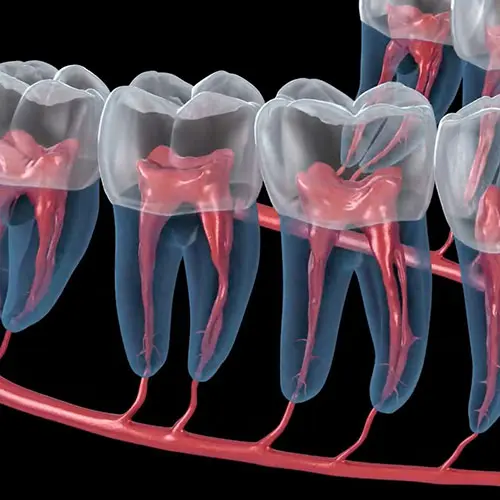
New Research Shows Dental Nerves Provide Early Protection Against Damage
A new study from the University of Michigan, published in Cell Reports and reported in Oral Health Group, reveals that the nerves inside teeth serve not only as pain detectors, but also as protective sensors that help prevent damage before pain is consciously felt. The research challenges long-held assumptions about the role of intradental nerves and opens new perspectives for dental therapies involving nerve regeneration.
Using advanced live imaging techniques and behavioral monitoring in mice, the scientists focused on high-threshold mechanonociceptors (HTMRs) — specialized nerve fibers designed to sense strong mechanical forces. These intradental neurons respond to pressure or force on a tooth and initiate a reflexive jaw-opening action within mere milliseconds, well before a person becomes consciously aware of pain.
In their experiments, they applied controlled mechanical pressure to mouse teeth and traced signals in genetically labeled nerve pathways. They used markers such as S100b and Scn10a to identify myelinated sensory neurons, enabling them to distinguish the nerve populations responsible for this protective reflex.
Remarkably, the jaw-opening reflex was triggered extremely quickly — typically within 5 to 15 milliseconds of the HTMR activation. This rapid response helps reduce the risk of structural damage such as cracks or fractures in the tooth before pain is even processed by the brain.
The authors emphasize that their findings reframe how we view tooth innervation. Rather than being passive pain alarms, tooth nerves appear to play active roles in mechanical protection and early warning. This insight may have profound implications for regenerative dental medicine, especially in strategies aiming to restore the pulp and nerve structures in damaged or root-treated teeth.
The study also suggests that future research should explore how these protective nerve functions change with age or disease, and whether therapies could harness or mimic them to strengthen tooth resilience.
📖 Original Article Information
“Study finds tooth nerves are more than pain sensors — they’re protectors.”
Oral Health Group, July 31, 2025